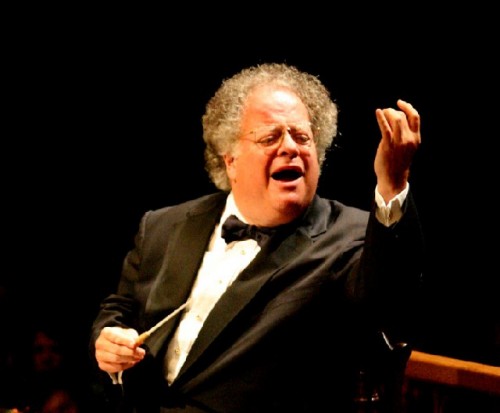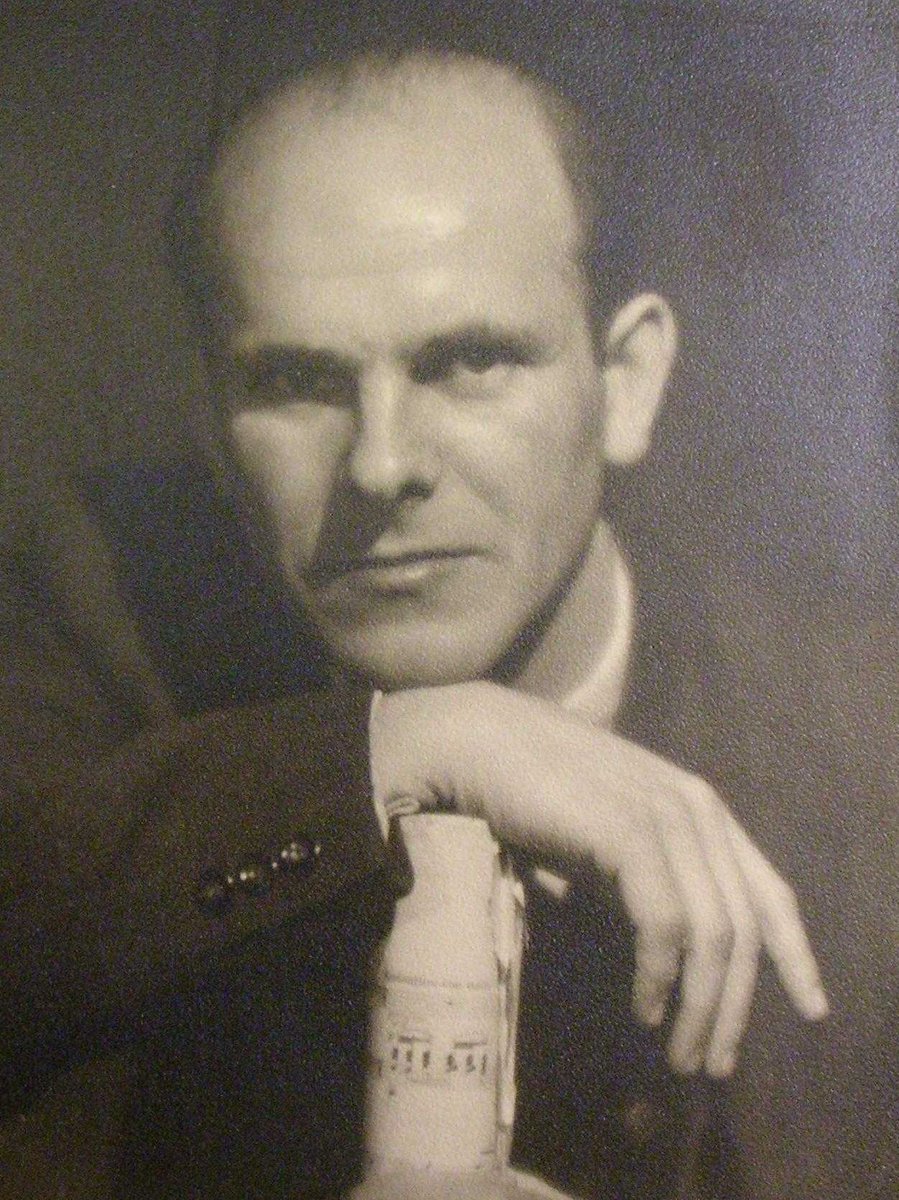What's really the matter with Levine and the Met
mainA while back, in the Wall Street Journal, I described the sad history of James Levine at the Boston Symphony Orchestra:
Boston has yet to recover from Levine’s vacillation.

That sorry story is now being repeated at his main stronghold, the Metropolitan Opera, which has dithered from one health episode to the next over the past 11 years without confronting the obvious and the necessary. It needed to put in place a successor strategy and failed to do so. The Met has officially ascribed Levine’s latest withdrawal to a mishap, a fall in the street, telling the New York Times:
He had a major operation last year for spinal stenosis, or compression of the spinal cord, and two follow-up surgeries, Mr. Gelb said he had canceled Tuesday’s rehearsal, which was to have been the conductor’s first day back, just the night before. “I didn’t want it to come out in dribs and drabs,” he added. “I wasn’t exactly sure what his condition was.”
That seems, at the least, disingenuous. Two people close to James Levine have told me he is suffering from uncontrollable shaking as a result of his various condition. The musical world owes him an enormous debt for his 40 years at the Met and wishes him well in his time of trouble.
But the runes here are blindingly clear. James Levine is in no fit condition to conduct. It will take a miracle for him to return. There is a musical vacuum at the Met. It cannot be allowed to prevail for long.





A musical vacuum? No successor strategy in place at the Met??
The Met announced Fabio Luisi’s appointment as Principal Conductor in the very same press release that announced Levine’s latest cancellations. The Met did this a few short months after effectively anointing Luisi as heir apparent in the pages of The New York Times.
Sure looks like a successor strategy to me.
Do people really not understand what a public relations disaster it would be for the Metropolitan Opera to be seen shoving an unwilling Levine out the door?
Given an ailing James Levine who obviously wants desperately not to be ailing and to return to work, I think the Met is handling this about as well as one could reasonably hope for.
Good grief!! it is not as if Levine wrote that which he conducted – he is just another conductor , good or bad
and music will go on without him as it has without Stokowski , Toscanini etc. etc .. Conductors are a dime a
dozen , a little less than a dozen for some good ones – it is like pointing to the ocean and commenting that
here comes the last wave .His Boston tenure ? was an ego trip -and the second raters that managed this charade were after a “NAME ” not a conductor and for a while all concerned pretended it was working . I am
afraid that like a certain tenor -baritone- mgr . he will not depart as a gentleman but will hang on until
it becomes untenable for all concerned, even his most devoted . As for the Met, it should throw him a farewell
gala and be done with it , this may even be good public relations for the Met since it has none to speak
of at this time . One wishes Mr. Levine only the best ….. but go already .
Conductors a dime a dozen?
Great, hire Slatkin and see how that goes.
Any Bostonian could have told you that Levine was wrong for the BSO- since Boston is not and never has been an opera town. Choral music, yes, opera, no.
This is not entirely accurate, from my reading of Boston. There are two opera companies, after all. It seems to me that Levine did a repertoire with the BSO that was very modern, largely in the atonal camp and completely different from what had ever been done there. I think it would be much more accurate to say that Boston is not an experimental, modern, atonal music town; opera, at least it seems to me, had nothing to do with it.
And how is atonal music experimental or modern?
What a silly question. Some atonal music is experimental and some is modern, obviously. Regardless, the BSO under Levine did all three of those types of music, which do overlap at times. Clearer?
Tom,
You sparked my curiosity, and a quick internet search found the following article with Esther Nelson of the Boston Lyric Opera. I was not aware of much that is being done by the BLO. Three quarters of a $7 million budget through contributions is quite impressive.
After reading this and another article, I’d also like to know, as an aside, how the BLO can produce four regular, full opera productions PLUS commission works for $7 million, but the NYCO can’t manage to rent a building and pay for more than chamber orchestras for $11 million.
He is so over rated. He is always good the first appearance with an orchestra but when he becomes a regular he invariably phones-it-in as he is always overtaxed from an overly ambitious schedule. None of these conductors are the things their hype promises. There are many great conductors out there and are every bit as common as great instrumentalists. Just as executive pay is being questioned in the wake of the spectacular failure of Wall Street, the time has come to stop investing and ascribing so much to baton wavers. They do it because their egos demand it and would still conduct for no money if we stopped paying them. Levine did what any good conductor would have done with such great oppertunities. During his time at the MET, he also forbade other good conductors from appearing there so he could always shine as the star. It was a miracle Gergiev made it in to the mix.
“During his time at the MET, he also forbade other good conductors from appearing there so he could always shine as the star.”
Not quite.
Mr Levine, aided by Bruce Crawford, convinced — and made it possible for — Carlos Kleiber to appear there in Bohème (1988), Traviata (1989), Rosenkavalier (1990), and Otello (1990).
Most people would agree that Carlos Kleiber was beyond ‘good’, by any measure.
Levine tried, for years after Kleiber’s last appearance, to get him back. They put together a Falstaff proposal in which he expressed some interest. And after 9/11, the MET tried like blazes to induce Kleiber to conduct a benefit or memorial event there.
Considering that every house in the world tried to get Kleiber, it must be acknowledged that James Levine actually did quite well in that department.
PS: I know all this because I knew and studied with CK from 1989 to the end, and have just finished a book about him. Mr Levine’s name pops up a number of times. Thanks!
Good point Andrew. Kleiber was certainly higher quality than almost anyone who conducted at the MET, but other than him, other major conductors did shockingly little there– Barenboim, Muti, Maazel, Abbado, and quite likely others.
Shame on you people here writing such cynical and mean-spirited drivel about Levine, who is without a doubt a giant of the podium,whether you like his conducting or not.
Levine never “barred” other great conductors from the Met.
The problem is that they were either too busy elsewhere or unwilling to conduct there.No major opera house has ever been able to have the greatest conductors for every or even most performances. Or ever will.
But the Met has also had distinguished conductors such as Ozawa,Dutoit, Mackerras,
Conlon, Eschenbach, Gergiev, Jurowski, Runnicles, Andrew Davis, Mark Elder,
Slatkin, Thielemann, and others. Not too shabby !
I don’t think there re any fewer great conductors today than there were in the first half of the 20th century. It’s just that so many critics and fans so idealize the past and romanticize it that they are blind to the greatness of today’s foremost conductors and other musicians.